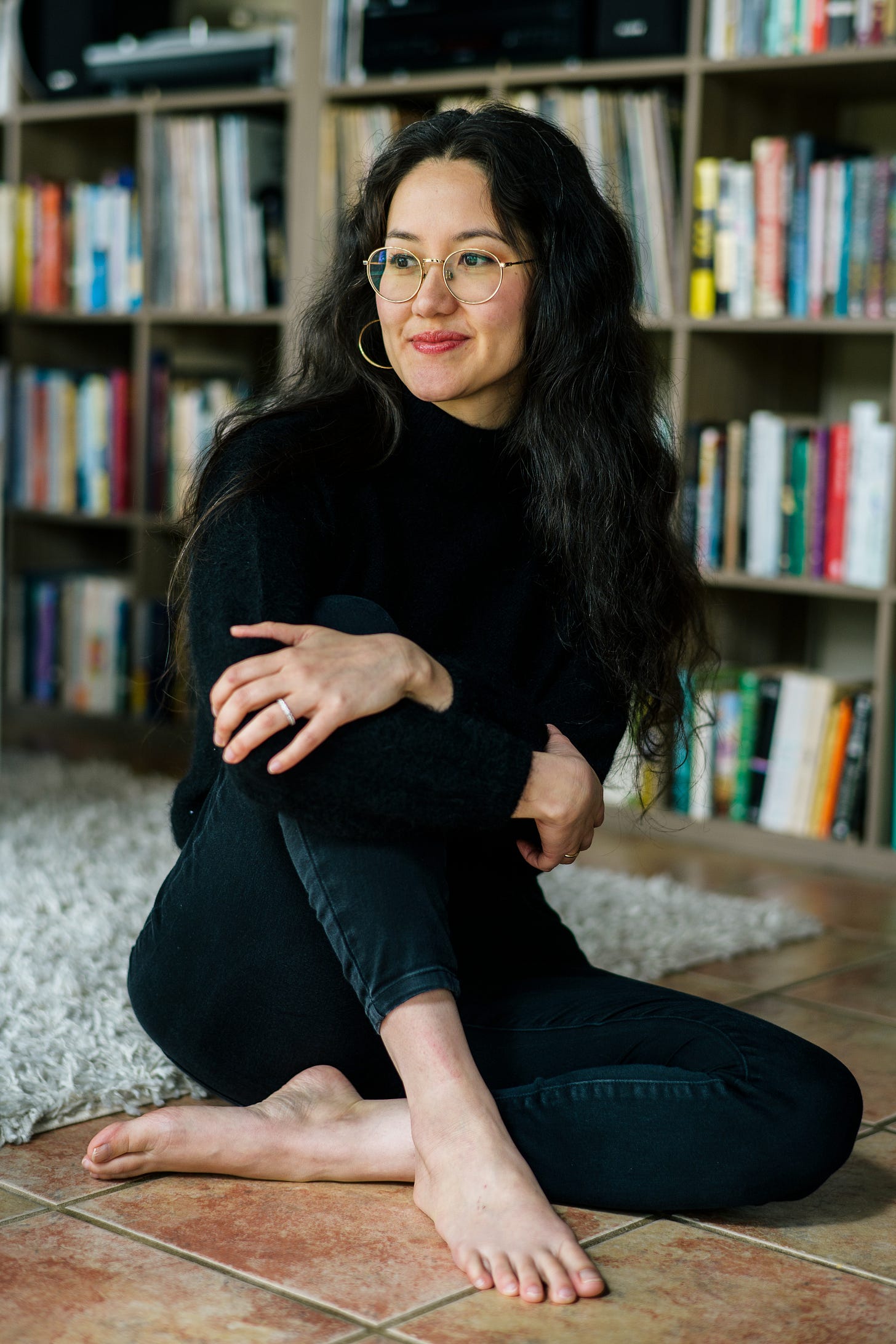Mississippi Transplant: Sarah-SoonLing Blackburn
"Some people look at me and can’t quite see how I fit in a place like Mississippi, but I feel like I fit, and I’ve come to appreciate that that’s all that really matters."
What does it mean to call Mississippi home? Why do people choose to leave or live in this weird, wonderful, and sometimes infuriating place? Educator, speaker, and author Sarah-SoonLing Blackburn grew up all over the world—from Tokyo, to Malaysia, to Beijing, to northern Virginia. She never expected to spend more than a couple years in Mississippi, and yet she has now lived here longer than any other place she’s called home. Her book Exclusion and the Chinese American Story comes out March 26.

Where are you from?
This is a tough question for me. My dad was an American diplomat, so my childhood was spent moving between various countries in East and Southeast Asia and the DC area. I was born in Bangkok, spent most of elementary school in Tokyo, and most of middle school in Beijing. My mom is Malaysian Chinese, so in many ways home was my grandparent’s house outside of Kuala Lumpur. That’s where I would go every year when school was out, but the longest I ever spent there continuously was a few months. So when I’m asked “Where are you from?” I rarely answer the question directly, because there is no direct answer! Depending on the context, I might say “I went to high school in Northern Virginia” or I might say “I’m Malaysian Chinese.”
These days, I’m most likely to answer like this:
“Where are you from?”
“I live in Mississippi. I didn’t grow up here, but I’ve lived here longer than anywhere else, and it feels like home to me.”
But sometimes it takes leaving a place to really understand and appreciate it. I was in London—this amazing, vibrant city—but all I could think about was the rural South.
When did you move to Mississippi and why did you move here?
I came to Mississippi for the first time in 2009, though I didn’t move here until 2012. My first couple of years I lived and taught in Lake Village, Arkansas, just across the bridge from Greenville. I would go to Greenville multiple times a week to run errands or to go to this lovely yoga class I would take in the back of a warehouse, for which I will always be grateful. In 2011 I moved to London to go to graduate school. That might sound like a drastic shift, but given where and how I grew up it made a lot of sense. I figured I would spend my whole life moving from place to place, and I figured the Delta was just one of those places I’d lived in and left. But sometimes it takes leaving a place to really understand and appreciate it. I was in London—this amazing, vibrant city—but all I could think about was the rural South. My master’s was in social justice and education, and all I could think and write about was social justice and education in the Delta. I missed my colleagues, my students, their families, the landscape—all of it. Long before graduation, I knew I had to come back. When the program was over I left the UK and moved to Clarksdale. I took a job teaching at Quitman County Elementary School. I’ve lived in a few different towns now, but I’ve been in Mississippi ever since.

What does “home” mean to you? How does Mississippi fit into that definition?
Because I’m not “from” any one place, home to me is more about choice than about the happenstance of birth. Home is any place where you are able to be or become yourself. Mississippi is that for me. I always thought I’d live a peripatetic life. I never understood people who stayed in one place for more than a few years, but I think it’s because I envied them.
I had a student from Marks, MS, a third grader, who loved to teach me the names of all the different trees and birds. I couldn’t do that when I was eight, because I’d never lived anywhere long enough to learn those things. If you go back into that student’s family history, a descendent of enslaved Africans, the land holds a lot of pain. But when he talked about the land, all you could hear was his pride. His dad was a farmer, as was his dad before him, and that’s what he wanted to be. I would regularly catch him reading the John Deere catalog instead of whatever he was supposed to be reading. His mom was thinking about moving the family to a bigger city to give her kids more opportunities, but she told me that she worried about taking them away from their roots.
I realized that I was longing for something that my eight-year-old student already knew to appreciate—living in a place where you have roots. Now, I can’t imagine living anywhere besides Mississippi. I might not have been born here, but I have chosen to grow my roots here. Like the trees that my student would name for me, the deeper my roots grow, the stronger I feel and the taller I stand. The more shade I provide for others. The better I can weather the various storms that life brings. That’s what home is.
Because I’m not “from” any one place, home to me is more about choice than about the happenstance of birth. Home is any place where you are able to be or become yourself. Mississippi is that for me.
Keep reading with a 7-day free trial
Subscribe to Rooted Magazine to keep reading this post and get 7 days of free access to the full post archives.



